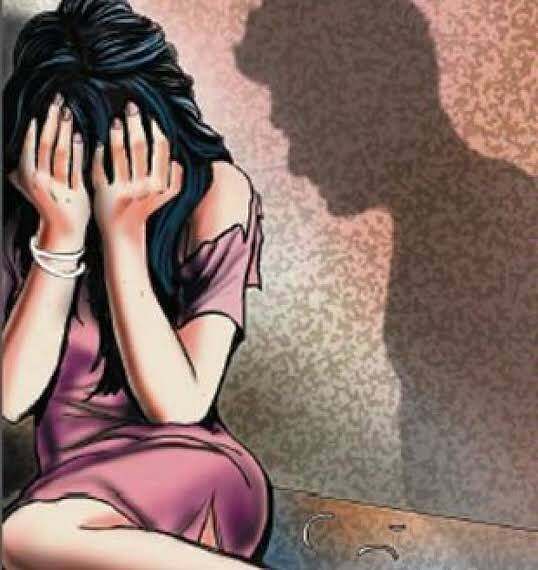By Yewande Mary Akanbi Esq.
Publisher; maryakanbi.blogspot.com
Email: marylisa967@gmail.com
Violence against Women has been addressed in numerous resolutions by both the Human Rights Council and the United Nations General Assembly. Although such resolutions do not have binding legal authority, they do set forth international standards and best practices. One of the most resolution against elimination of violence against women is the DEVAW(Declaration on Elimination of Violence Against Women) adopted by the United Nations General Assembly in 1993. DEVAW establishes the most comprehensive set of standards in International Law for the protection of women against sexual and gender based-violence.
The Declaration defines “violence against women as any act of gender-based violence that results in or is likely to result in, physical, sexual or psychological harm or suffering to women including threats of such acts, coercion or arbitrary deprivation of liberty whether occurring in public or private life. And recommended that the perpetrators should be punished accordingly.
The Nigerian Police failure to investigate sexual violence deprives survivors of justice. There are numerous unreported cases of rape each year, including children raped to death.
Despite the Nigerian authorities declaration of a “state of emergency” on sexual and gender-based violence, rape persists at crisis levels with most survivors denied justice, rapists avoiding prosecution, and hundreds of cases of rape going unreported due to reports of corruption, stigma and victim blaming, Amnesty International published in it’s reports based on research carried out in Nigeria between March 2020 and August 2021. The report, Nigeria: A Harrowing Journey; Access To Justice for Women and Girls Survivors of Rape covers harrowing cases of sexual violence against women and girls, including a six-year-old and an 11-year-old who were attacked so viciously they died. The report reveals how harmful cultural stereotypes, failures of law enforcement to investigate rape cases, toxic misogyny and insufficient support for survivors, have created a culture of silence and impunity which continues to fail hundreds of women and girls every year.
The report, Nigeria: A Harrowing Journey; Access To Justice for Women and Girls Survivors of Rape covers harrowing cases of sexual violence against women and girls, including a six-year-old and an 11-year-old who were attacked so viciously they died. The report reveals how harmful cultural stereotypes, failures of law enforcement to investigate rape cases, toxic misogyny and insufficient support for survivors, have created a culture of silence and impunity which continues to fail hundreds of women and girls every year.
“The fear of not being believed, or even being blamed for being raped, is creating a dangerous culture of silence that prevents survivors from seeking justice.
It is unacceptable that survivors of rape and other forms of gender-based violence face such a torturous ordeal to get justice, which only adds to their pain. The ‘state of emergency’ has proven to be an empty declaration, which has so far done nothing to protect women and girls in Nigeria.”
Pandemic of Rape.
Rape continues to be one of the most prevalent human rights violations in Nigeria.
As reports of rape escalated across Nigeria, state governors declared a “state of emergency” on rape and gender-based violence in June 2020.
They also promised to set up a sex offenders register. But over three years since their declaration, nothing has changed, as more cases of rape have been reported.
Law Enforcement Failures And It’s Challenges.
Rape and its punishment is defined under the Criminal Code, which is applicable in the southern part of Nigeria, and the Penal Code, which is applicable in northern Nigeria. The Violence Against Persons Prohibition Act expanded the scope and definition of rape but was silent on consent. “Notwithstanding expanding the legal scope of the definition of rape the Violence Against Persons Prohibition Act and other laws have limited jurisdiction.
Even in states where the Act and other laws have been domesticated, there has been no enforcement or implementation,”. Survivors and NGOs interviewed for this research said stigma and victim-blaming are key factors hindering the reporting of rape. Survivors shared distressing experiences of both, and told Amnesty International that they did not report due to fear of being disbelieved and blamed. Children, who are increasingly becoming targets of sexual violence, face particular challenges in reporting these crimes because of a lack of reporting process that is child-friendly.
Some survivors said they were discouraged from seeking justice because of the toxic attitude of police officers towards gender-based violence, which manifested in humiliating lines of questioning and victim-blaming. In addition, decrepit police stations often lack the space for privacy that survivors need to make their statements.
Onyinye, a 14-year-old, was raped by her neighbour when she was sent by her mother to help fix her phone. When Onyineye and her mother went to the police station to report the crime, not only did a female police officer slap the girl and pull her ear, Onyinye’s mother was also scolded for not giving her daughter a ‘good upbringing’.
Activists and lawyers have decried the poor quality of police investigations into rape cases. In some cases, perpetrators bribe the police not to investigate their crimes. The police have also advised survivors and perpetrators to settle cases outside the scope of the criminal justice system, which only perpetuates violations of women’s human rights and impunity for rape.
SOLUTIONS
All reported cases of rape must be thoroughly, promptly, and impartially investigated and perpetrators must be prosecuted, and if convicted, sentenced with appropriate penalties. Existing discriminatory laws must be repealed and followed up with a concrete implementation and enforcement framework.
Nigerian police must provide all necessary support to survivors and act in line with their code of conduct, by providing safe process of seeking justice for survivors to report rape and other gender-based violence and get justice.
Females should report any acts of rape and violence including acts such as slapping of their buttocks by the opposite sex.
The dangerous trends circulating our climax such as referring to women as conference materials should henceforth be discouraged, it’s totally out of place and unacceptable.
Courts must ensure that cases of sexual violence are fairly and promptly prosecuted. Any backlog in rape cases that may create unacceptable barriers for rape survivors’ access to justice must be addressed.
Although there is a law criminalising the offence of rape; more proactive measures must be put in place to tackle the menace.
Nigeria must protect women and girls by ensuring that perpetrators of rape face justice and survivors get protection and psychosocial and medical support. The tide of sexual impunity against women and girls must be turned now – Osai Ojigho, Director Amnesty International, Nigeria.




